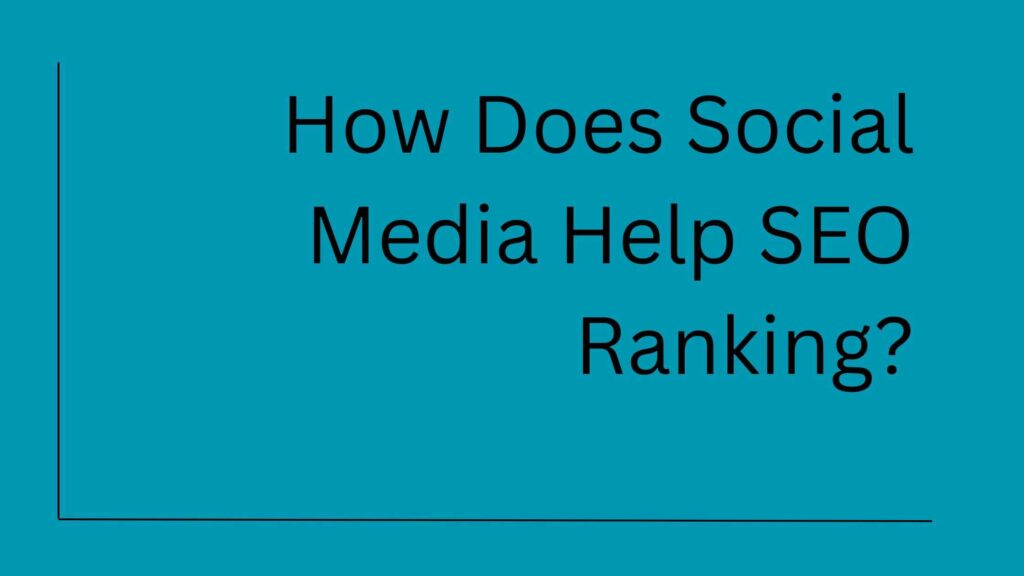According to research on search engine optimization today, “As social media adoption continues to increase, search engines have adapted their algorithms to take social media data into account when determining the ranking of a website.” This capability means that companies creating content must take this into account and can’t simply share a link without a strategy.
The relationship between social media and SEO has been debated for years among digital marketers and SEO professionals. While Google has stated that social signals aren’t direct ranking factors, the indirect benefits of social media on SEO are undeniable. Social media platforms drive traffic, increase brand visibility, amplify content reach, and create opportunities for earning backlinks, all of which contribute to improved search engine performance.
Understanding how social media influences SEO helps businesses develop more effective digital marketing strategies that leverage both channels synergistically. This guide explores the connection between social media and SEO, examines the evidence, and provides practical insights for using social media to support SEO goals.
Role of Social Media in SEO: How do they Benefit in Site Rankings?
While social media is not a direct ranking factor, it does have a significant connection to SEO. Social media and SEO are linked through what marketers call social signals, metrics like shares, likes, comments, and overall engagement on social platforms.
These signals bolster the considerations Google takes into account when determining a website’s ranking, albeit indirectly. Content shared across various social media platforms can accumulate engagement signals that indicate quality and relevance. The more valuable the content shared on social media, the more likely the audience will share it with their friends and followers.
As a result, many people will link back to the original posts as the sharing continues organically. The shared materials, when taken together, can help improve a website’s visibility and SEO performance by increasing traffic, enhancing brand awareness, and providing natural link-building opportunities.
Social media acts as a catalyst for the factors that directly influence SEO rankings, particularly content distribution, audience engagement, and natural backlink acquisition. When content performs well on social media, it often leads to increased website traffic, longer dwell times, and more opportunities for other websites to discover and link to that content.
1. Social Media May or May Not Boost Your Search Rank Directly
The question of whether social signals directly impact search rankings has been controversial in the SEO communities, such as Reddit, Discord, and on other forums. Does Google consider links shared on social media accounts as reliable backlinks? When a blog post goes viral on Twitter, do those new links help the post’s search ranking?
Many marketers believe that links to websites via social media accounts do impact rankings. Marketing professionals have long argued that links are fundamentally achieved through creating unique content that is shared across social media. Links to content on Facebook, Twitter, LinkedIn, Instagram and other social networks help search engines understand what sites are trustworthy and should be ranked for specific keyword phrases.
Google has made statements indicating they consider how often a link has been tweeted or retweeted, as well as the authority of the social media users who shared the link. Facebook, Twitter and other social platform pages are treated like any other pages in their web index, so if something happens on these platforms and they’re able to crawl it, they can return that in their search results.
However, Google has also stated at various times that social signals are not direct ranking factors. Former Google engineer Matt Cutts clarified that Google doesn’t use social signals the same way it uses traditional backlinks. The platforms’ APIs and access restrictions make it difficult for Google to consistently crawl and index social content.
The Nuanced Reality
The truth appears to be somewhere in the middle. While social media engagement metrics themselves may not directly boost rankings, the outcomes of social media success absolutely do. When content performs well on social media, it typically results in:
- Increased website traffic from social referrals
- Higher brand searches in Google
- More natural backlinks as content gets discovered
- Improved user engagement metrics
- Greater content distribution and visibility
These secondary effects do influence SEO performance, even if the social signals themselves aren’t direct ranking factors.
Takeaway: While the authority of a social account may not directly affect search rank, links shared on social media can lead to legitimate backlinks and increased visibility. The distinction matters less than the practical reality strong social media presence supports SEO goals through multiple indirect pathways.
2. Social Media Profiles Rank in Search Engines
While social shares may not directly influence a webpage’s position in search listings, social profiles definitely impact the content of search results. Social media profiles are often among the top results in search listings for brand names.
When someone searches for a company name like “Nike” or “Starbucks,” the company’s social media profiles on Instagram, Facebook, Twitter, and LinkedIn frequently appear on the first page of results. These profiles often rank higher than many of the company’s own website pages.
Search engines display social profiles prominently because they recognize that searchers often want to see a brand’s social presence. Social channels can feel more personal than website pages, and they’re an excellent way to get a sense of a company’s personality and current activity.
When researching an unfamiliar company, many people navigate straight to Twitter, Instagram, or LinkedIn to see recent updates, customer interactions, and overall brand presence. If a social profile appears at the top of query results, users are equally likely to click on it as they are to click on the company’s website.
Google Knowledge Panels
Google also displays company information from social profiles in Knowledge Panels, the information boxes that appear on the right side of search results. These panels aggregate data from various sources, including social media profiles, to provide quick company overviews, including follower counts, recent posts, and profile links.
Takeaway: Social profiles unquestionably matter to Google and especially to people searching for brands online. Active social channels make the experience of learning about a brand online more engaging and personal. Maintaining updated profiles with current information and engaging content helps control what appears in brand search results and provides valuable touchpoints for potential customers discovering the brand.
3. Social Media Channels Are Search Engines, Too
People no longer exclusively use Google and Bing to search for information; they also use social media channels to find what they’re looking for. Modern search behavior includes searching directly within social platforms, making social media optimization an extension of search engine optimization.
This works in multiple ways. If a brand is active on Twitter, people can discover the company’s content by searching for relevant topics using Twitter’s search function. Similarly, brands that create visually appealing content can benefit from making their content discoverable in Pinterest and Instagram by using hashtags and properly organizing their content.
Platform-Specific Search Behavior
Different platforms serve different search intents:
- YouTube is the second-largest search engine globally, with users searching for video tutorials, reviews, and entertainment
- Pinterest functions as a visual discovery engine where users search for ideas, inspiration, and solutions
- Instagram search helps users discover brands, products, and content through hashtags and location tags
- LinkedIn is where professionals search for industry insights, thought leaders, and business solutions
- TikTok has become a significant search platform for younger demographics seeking authentic reviews and recommendations.
When someone wants to learn about a company, they’re likely to search for it directly on these platforms to see what kind of presence exists on each channel. The content discoverable through these platform searches contributes to overall brand visibility and can drive traffic that traditional search engines wouldn’t capture.
Takeaway: Social media platforms are powerful search engines in their own right. Optimizing content for discovery within these platforms expands overall search visibility beyond traditional search engines and reaches audiences where they’re already spending time.
4. Not at the Present Time Doesn’t Mean Not Ever
Because Google states that social signals don’t currently directly affect search rank doesn’t mean they never will. Social media shows no signs of becoming a less important part of a brand’s online presence anytime soon. Given that link-building strategies have become more scrutinized and some tactics less reliable for demonstrating webpage quality, it makes sense that search engines would begin looking for additional signals of authority and value.
The Evolving Search Landscape
Search algorithms constantly evolve to better understand and rank content. As social media becomes increasingly integrated into how people discover and consume content, search engines may develop more sophisticated ways to incorporate social signals into their ranking algorithms.
Several factors suggest social signals could become more important:
- Social platforms are becoming more open with their data and APIs
- User behavior increasingly blurs the line between social browsing and web browsing
- Social proof and engagement are strong indicators of content quality
- Search engines continuously seek new signals to identify valuable content
Takeaway: There’s no reason why social signals won’t begin to influence search rankings more directly in the future. Smart brands will continue building authority in key social channels and consider social media when planning SEO strategy. Establishing a strong social presence now positions brands to benefit from any future algorithm changes that incorporate social signals.
5. Don’t Forget Bing Search Engine
Google may have clarified its position on social signals, but Bing has consistently maintained that they do incorporate social authority into their ranking algorithms. Bing has been transparent about how their algorithm incorporates social signals into search results.
Bing representatives have stated they look at the social authority of users, considering factors like how many people someone follows, how many follow them, and whether that person is considered influential in their field. This social authority can add weight to how content from or shared by that user performs in Bing’s search results.
Bing’s Growing Market Share
While Google dominates the search market share, Bing powers a significant portion of searches, particularly in certain demographics and when including Yahoo search (which uses Bing’s algorithm). Bing also powers search within Microsoft products and services, expanding its reach beyond direct Bing.com searches.
For businesses targeting specific audiences or operating in certain industries, Bing traffic can be substantial and valuable. The platform’s willingness to incorporate social signals into rankings means social media efforts may have more direct SEO benefits on Bing than on Google.
Takeaway: Bing, which holds meaningful search market share, has been clear about how their algorithm incorporates social signals into search results. Unlike Google, they haven’t changed their position on this issue. With its user base steadily growing, particularly among certain demographics, companies would be wise to include Bing in their SEO strategies and recognize that social media efforts may directly benefit Bing rankings.
Why Is Social Media Important For SEO?
Despite its indirect effects on search engine results page rankings, social media can significantly influence SEO since it drives quality traffic to websites and campaigns. Brand advocates are created when brands produce quality content that connects with and adds value to their target audiences. This audience will likely engage with the content and share it with friends and followers. This cycle continues as followers engage with, share, and find value in the content.
Multiple Pathways of Social Media Influence on SEO
Social media supports SEO through several interconnected mechanisms:
Increased Content Distribution
Social media platforms provide distribution channels that can exponentially increase content reach. A single piece of content shared by a brand account can be reshared by followers, reaching networks far beyond the original audience. This amplification increases the likelihood that the content will be discovered by people who might link to it, cite it, or share it further.
Traffic Generation
Social media drives direct traffic to websites. While this traffic doesn’t directly impact rankings, it contributes to overall website authority and provides opportunities for visitor conversion. Search engines monitor traffic patterns, and consistent referral traffic from social media may indicate content relevance and quality.
Natural Backlink Acquisition
When content gains traction on social media, it gets seen by more people, including bloggers, journalists, and content creators who might link to it in their own work. This natural link building is one of the most valuable indirect benefits of social media for SEO. High-quality backlinks earned through content discovery remain one of the strongest ranking factors.
Brand Awareness and Searches
Social media builds brand awareness, which leads to increased branded searches on search engines. Search engines interpret branded search volume as an indicator of brand authority and trustworthiness. Companies with strong social media presence typically see corresponding increases in branded search queries.
Content Formats and Engagement
Content is available in various formats, including blog posts, videos, infographics, ebooks, webinars, reviews, and podcasts. Different formats perform better on different social platforms, and diversifying content types increases opportunities for engagement and sharing.
In addition to offering valuable information, these marketing materials can encourage repeat visitors and help drive leads into the marketing funnel. Video content particularly performs well on social media and can be optimized for search within YouTube and other video platforms. So it’s vital to make the videos be more aligned with the marketing objectives.
Amplification Through Networks
Marketing teams can amplify their posts to wider audiences by strategically distributing content via social media outlets. By increasing visibility, improving traffic quality, and generating backlinks to relevant websites, larger audiences can indirectly affect search engine results.
Social algorithms favor content that generates early engagement, so building an engaged following means content reaches more people organically. This creates a compounding effect where successful content becomes more visible, generates more engagement, and creates more opportunities for backlinks and traffic.
Best Practices for Leveraging Social Media to Boost SEO
Understanding the connection between social media and SEO is valuable, but implementing effective strategies produces results. Here are proven practices for using social media to support SEO goals:
Create Highly Shareable Content
Focus on producing content that provides genuine value and encourages sharing. This includes original research, comprehensive guides, entertaining content, inspiring stories, and useful tools or resources. Content that solves problems or provides unique insights gets shared more frequently.
Optimize Social Profiles Completely
Fully optimize social media profiles with accurate business information, relevant keywords in descriptions, links to websites, and high-quality visual content. Complete profiles rank better in both platform searches and Google search results.
Maintain Consistent Brand Presence
Establish presence on social platforms where target audiences actively engage. Consistent posting, regular engagement, and authentic community building create loyal followings that amplify content reach.
Use Strategic Hashtags
Research and use relevant hashtags to increase content discoverability within social platforms. Platform-specific hashtag strategies help content reach audiences actively searching for related topics.
Engage Authentically
Social media success requires genuine engagement, not just broadcasting. Respond to comments, participate in conversations, acknowledge mentions, and build real relationships with followers and industry peers.
Monitor and Analyze Performance
Track which content types and topics generate the most engagement and traffic. Use platform analytics and website analytics to understand how social efforts impact overall SEO performance and adjust strategies accordingly.
Encourage Social Sharing
Make it easy for website visitors to share content by including social sharing buttons on blog posts, articles, and key pages. The easier sharing becomes, the more likely people will do it.
Collaborate with Influencers
Partner with influencers and industry leaders who can amplify content reach to their established audiences. Influencer sharing can dramatically increase content visibility and create opportunities for high-quality backlinks.
Conclusion
Social media is a powerful marketing tool that can help improve SEO performance through multiple indirect pathways. By promoting content on social media, brands can attract traffic to websites from interested individuals. This traffic may then become interested in learning more about products or services, which can lead to increased website authority, natural backlinks, and better SEO results.
To improve social media marketing strategy in ways that support SEO, content must be high-quality and relevant to the target audience. Targeting specific social media platforms where audiences actively engage and promoting content consistently across those platforms ensures content reaches the largest possible audience and helps improve SEO performance in the process.
The relationship between social media and SEO is complex and largely indirect, but the connection is real and valuable. Brands that integrate social media strategy with SEO strategy position themselves to benefit from the synergies between these channels. While social signals may not directly boost rankings today, the traffic, engagement, awareness, and backlinks generated through social media absolutely do impact search performance.
Success requires viewing social media and SEO not as separate initiatives but as complementary components of a comprehensive digital marketing strategy. Content that performs well socially tends to perform well in search, and search-optimized content provides valuable material for social sharing. By creating quality content, building engaged audiences, and strategically leveraging both channels, brands can maximize their online visibility and achieve better results than either channel could deliver independently.

The Chief Author and Editor at Intothecommerce. As a seasoned expert in digital marketing, I direct the site’s strategic content and ensure every piece meets the highest industry standards. My insights drive our coverage on SEO, paid media, and cutting-edge marketing technology.





3 thoughts on “How Does Social Media Help SEO Ranking? A Logical Guide”
This is a wonderful, simply neat one to read, bringing a lot more new and useful SEO tips.
Hey, I wasn’t aware that social media had this much influence on the SEO. Thanks for posting and letting people alike know about it.
I must say this article is extremely well written, insightful for social media marketers, and packed with valuable knowledge that shows the author’s deep expertise on the subject, and I truly appreciate the time and effort that has gone into creating such high-quality content because it is not only helpful but also inspiring for readers like me who are always looking for trustworthy resources online. Keep up the good work and write more. I am a follower from now.